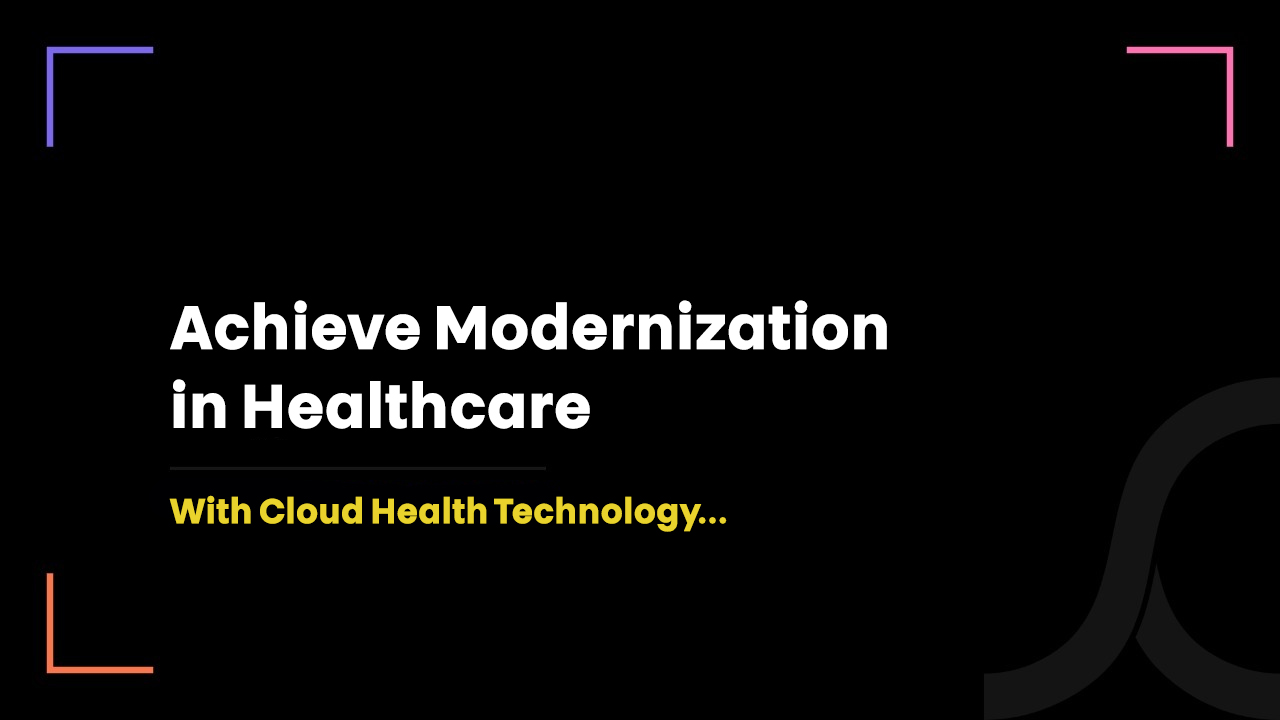The Benefits of Implementing Cloud Technology in the Healthcare

1 month ago
The healthcare industry has witnessed a remarkable surge in the adoption of cloud technologies.
This paradigm shift has brought numerous benefits to healthcare organizations, including
- Improved efficiency
- Enhanced patient care
- Streamlined operations
The Rising Role of Cloud Technology in Healthcare
Cloud technologies have revolutionized the healthcare industry by providing scalable and secure solutions that leverage the power of data and advanced analytics.
The increasing use of cloud technologies in healthcare organizations enables them to store, manage, and analyze vast amounts of data efficiently.
This digital transformation has paved the way for improved patient outcomes, enhanced collaboration among healthcare providers, and reduced costs.
The Benefits of Adopting Cloud Technology in Healthcare

1. Agility and Scalability
Cloud-based solutions offer unparalleled flexibility, allowing healthcare organizations to quickly adapt to changing demands.
Scalable infrastructure ensures efficient data management, making it easier to handle large volumes of
- Medical records
- Research data
- Patient information
With the cloud, healthcare providers can seamlessly scale their resources up or down based on their needs, avoiding the limitations of traditional on-premises systems.
2. Enhanced Data Security
Cloud providers invest heavily in robust security measures, surpassing the capabilities of many individual healthcare organizations.
This heightened security helps protect sensitive patient data, ensuring compliance with stringent regulations such as HIPAA.
Cloud platforms often offer advanced encryption, access controls, and regular security audits, providing healthcare organizations with peace of mind regarding data privacy and protection.
3. Interoperability and Collaboration
Cloud-based platforms facilitate seamless collaboration among healthcare providers, enabling the exchange of
- Patient information
- Test results
- Treatment plans
This interconnectedness enhances care coordination, reduces errors, and improves patient safety.
Cloud solutions enable secure data sharing and interoperability across different healthcare systems, promoting better communication and coordination among various stakeholders involved in patient care.
4. Advanced Analytics and Insights
Leveraging cloud technologies, healthcare organizations can tap into the power of advanced analytics and machine learning algorithms.
These capabilities contribute to improved patient outcomes and operational efficiencies by enabling
- Data-driven decision-making
- Predictive analytics
- Identification of patterns and trends
Cloud-based analytics solutions allow healthcare providers to derive actionable insights from vast amounts of data, leading to
- Personalized treatments
- Early disease detection
- Optimized resource allocation
The Roadmap to Achieve Modernization in Healthcare
To embark on a successful cloud journey, healthcare organizations need to follow a strategic roadmap that ensures a smooth transition and minimizes disruptions.
The key components of this roadmap are:
1. Vision and Strategy
Establish a clear vision for cloud adoption and define a comprehensive strategy that aligns with organizational goals.
Identify the specific areas where cloud technologies can bring the most value, such as
- Data storage
- Analytics
- Telemedicine
- Patient engagement
Engage key stakeholders in the decision-making process to gain buy-in and ensure alignment.
2. Assess and Prioritize
Conduct a thorough assessment of existing systems, applications, and data infrastructure.
Determine which components are best suited for migration to the cloud, considering factors such as
- Security
- Compliance
- Criticality
Prioritize the migration of systems that will have the most significant impact on patient care and operational efficiency.
3. Infrastructure and Architecture
Design a cloud infrastructure that meets the unique needs of your healthcare organization.
Consider factors such as
- Data storage
- Backup and recovery mechanisms
- Integration with existing systems
Ensure that the architecture supports
- Scalability
- Security
- Interoperability
Collaborate with cloud service providers to design a robust and future-proof architecture that can evolve with your organization's needs.
4. Data Migration and Integration
Develop a robust plan for migrating data to the cloud while ensuring data integrity and minimal disruption.
Implement proper integration mechanisms to connect cloud-based applications with existing on-premises systems.
Pay close attention to data security and privacy during the migration process, ensuring that sensitive patient information is safeguarded throughout the transition.
5. Governance and Compliance
Implement robust governance frameworks to address
- Data privacy
- Security
- Compliance requirements
Establish policies and procedures to ensure that healthcare data remains secure, and monitor adherence to regulatory standards.
Collaborate with legal and compliance teams to ensure that cloud deployments comply with industry regulations and guidelines.
6. Change Management and Training
Prepare your workforce for the transition to cloud technologies through comprehensive change management programs.
Communicate the benefits of cloud adoption and address any concerns or resistance among employees.
Provide training and support to enable employees to adapt to the new systems and workflows effectively.
Encourage a culture of innovation and continuous learning to maximize the benefits of cloud technologies.
7. Continuous Improvement
Embrace a culture of continuous improvement by monitoring key performance indicators and regularly evaluating the effectiveness of your cloud infrastructure.
Leverage feedback and insights to refine and optimize your cloud strategy.
Stay updated with the latest advancements in cloud technologies and explore new opportunities for innovation within your organization.
Regularly assess the impact of cloud adoption on
- Patient care
- Operational efficiency
- Cost savings
Embark on a Cloud Health Technology Journey with SyS Creations
SyS Creations is a healthcare software development company that specializes in delivering cutting-edge solutions exclusively for the healthcare industry.
With a deep understanding of the unique challenges and complexities of the healthcare domain, we, at SyS Creations, are well-equipped to provide tailored services that cater to the specific needs of healthcare organizations.
We have been a renowned player in the field with over 8 years of experience.
We place a strong emphasis on data security, compliance, and privacy, ensuring that healthcare organizations can trust their solutions with sensitive patient information.
Our team of skilled professionals collaborates closely with clients to
- Understand their requirements
- Provide expert guidance
- Deliver innovative solutions that align with the organization's vision and goals
Fill out the contact form and let’s discuss your unique requirements.
